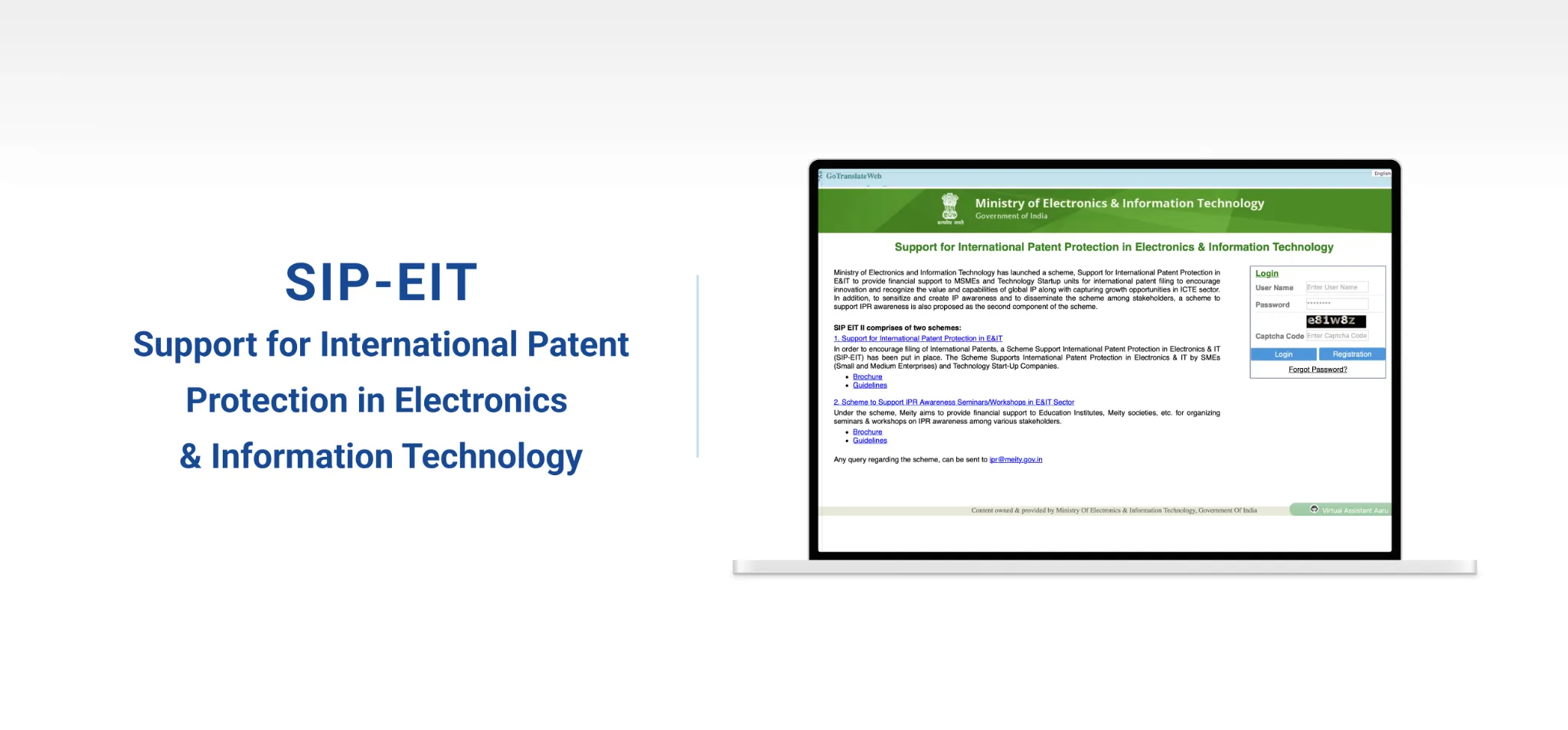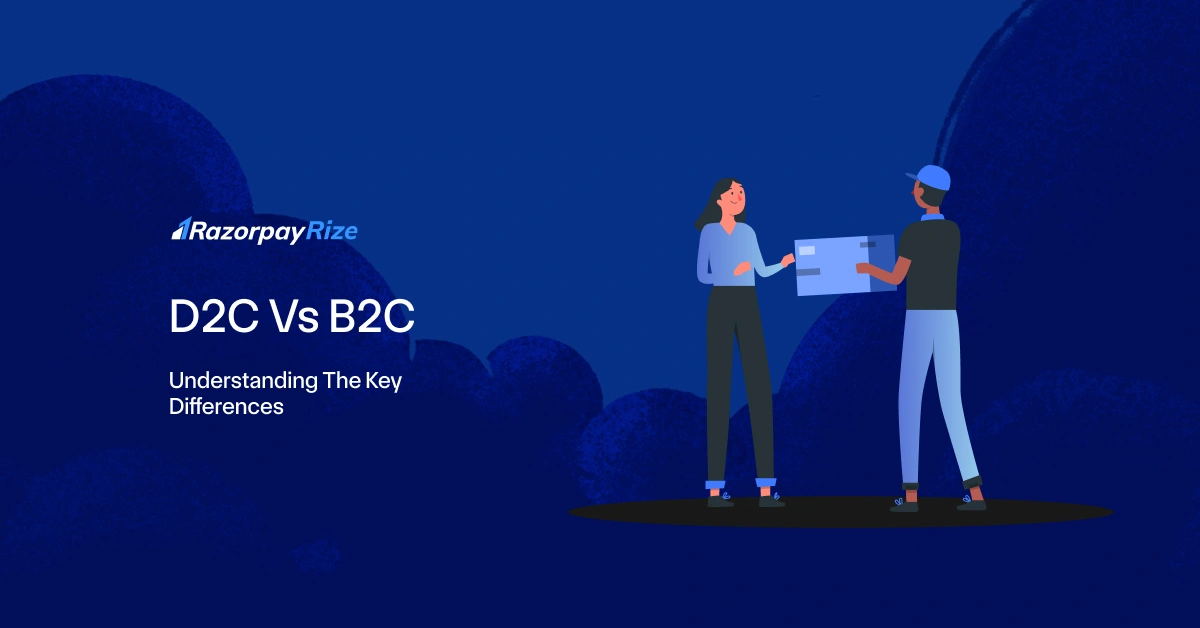The SIP-EIT program offers financial assistance to MSMEs and technology startups in filing international patents. It also encourages innovation, recognizes the value and capabilities of global IP, and captures growth opportunities in the ICTE sector.’
The primary objective of the scheme is to safeguard knowledge and innovative products from misuse. Since its inception, the scheme has revealed numerous new capabilities and received government backing. The SIP-EIT scheme aims to facilitate approximately 200 international ICT patent applications.

Table of Contents
Eligibility
- Must be registered under the Government of India's MSME Development Act of 2006.
- Must be a company registered under the Companies Act of the Government of India and must meet the investment restrictions in plant and machinery or equipment set forth in the Government of India's MSME Development Act 2006.
- Must be a technology incubation enterprise or a startup registered as a company and located in an incubation center or park (in this case, a certification from the incubation center or park is required).
- Must be an STP Unit that has been approved.
- The invention must be in the field of electronics or information and communication technologies.
List Of Important Documents Required
- Scanned copy of MSME Registration Certificate (For MSME Units)
- Scanned copy of Company Registration Certificate (For Companies)
- Scanned copy of STP Registration (For STP Units)
- Scanned copy of the Registration Certificate issued by a competent authority and a certification from the incubation Centre/Park (For Technology Incubation Enterprise/Startup)
- Scanned copy of the last audited Balance Sheet
- Copy of product brochure, if any
- Copy of latest Annual Report, if any
- Copy of official filing receipt (OFR) with the Indian Patent Office
- Copy of waiver under section 39 of the Indian Patent Act (Outside India)
- Copy of proof of the application under PCT/ Paris Convention or Direct International Filing
- Copy of technical writeup of invention as per the format of technical writeup
- Patent search report
- Scanned copy of Details for transfer of e-payments as per the format
- Scanned copy of the Declaration form duly signed and sealed as per the format
- A statement by the auditor of the enterprise that they fulfill the criteria of investment in plant and machinery or investment in capital equipment (as the case may be) as stipulated in the MSMED Act 2006.
Application procedure for Startups
- Visit the official website http://www.ict-ipr.in/sipeit/login.
- Create a User account by logging in after filling out all the details.
- Once “Login” is created, one can apply online for the scheme by submitting the required documents.
Selection OR Acceptance of Startups
The acceptance of startups under this scheme depends on the following criteria:
- For a particular invention, there can be one application for foreign filling.
- An Indian patent attorney firm with at least five years of experience in handling international patent applications handles and processes patent applications.
- Only five applications per financial year will be considered for reimbursement from a single applicant.
- The applicant should have already filed a patent application with the complete specification for the said invention with the Indian Patent Office.
- International patent filing options include the PCT route, the Paris Convention route, or filing directly in a foreign country of the innovator's choice.
Benefits
- This scheme provides financial support for the International filing of patents at different stages, including expenses in filing and processing.
- The maximum amount reimbursed per innovation shall be Rs 15 lakhs or 50% of the total expenditures paid in filing and processing a patent application up to grant, whichever is less.
- Under the scheme, financial support is also provided to Education Institutes, Meity societies, etc., for organizing seminars & workshops on IPR awareness.
Frequently Asked Questions
Private Limited Company
(Pvt. Ltd.)
- Service-based businesses
- Businesses looking to issue shares
- Businesses seeking investment through equity-based funding
Limited Liability Partnership
(LLP)
- Professional services
- Firms seeking any capital contribution from Partners
- Firms sharing resources with limited liability
One Person Company
(OPC)
- Freelancers, Small-scale businesses
- Businesses looking for minimal compliance
- Businesses looking for single-ownership
Private Limited Company
(Pvt. Ltd.)
- Service-based businesses
- Businesses looking to issue shares
- Businesses seeking investment through equity-based funding
One Person Company
(OPC)
- Freelancers, Small-scale businesses
- Businesses looking for minimal compliance
- Businesses looking for single-ownership
Private Limited Company
(Pvt. Ltd.)
- Service-based businesses
- Businesses looking to issue shares
- Businesses seeking investment through equity-based funding
Limited Liability Partnership
(LLP)
- Professional services
- Firms seeking any capital contribution from Partners
- Firms sharing resources with limited liability
Frequently Asked Questions
What types of intellectual property are covered under the SIP-EIT scheme?
The scheme primarily focuses on supporting international patent applications related to innovations in the Electronics & Information Technology sector. This may include inventions, designs, processes, and other forms of intellectual property.
Can individuals or organizations from outside India apply for support under the SIP-EIT scheme?
No, the SIP-EIT scheme is specifically designed to support Indian innovators, startups, MSMEs, and other entities engaged in research and development activities within India.
















